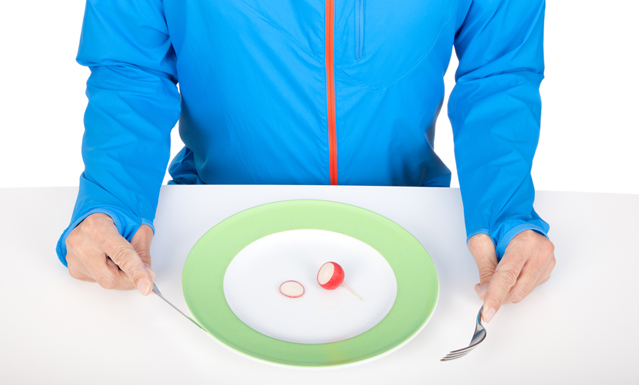In general, yes, exercise can suppress appetite. Several studies have looked at the effect exercise has on two hormones thought to control hunger: ghrelin, which stimulates hunger, and peptide YY, which signals satiety.
“We’ve shown repeatedly that if you do fairly vigorous, continuous aerobic exercise, ghrelin is always suppressed” as long as you’re exercising, says , reader in exercise metabolism at Loughborough University’s School of Sport, Exercise and Health Sciences. When you’re done exercising, hunger-triggering ghrelin quickly returns to normal levels. “Aerobic exercise also stimulates an increase in [satiety hormone] peptide YY that seems to last for two or three hours after exercise,” Stensel says.
He categorizes vigorous exercise as anything done at or above 70 percent of your . Endurance exercise like distance running, , suppresses appetite more than high-intensity sprint interval workouts or weight lifting.
The result of these temporary hormonal changes? “Most people didn’t eat any more on exercise days than they did on rest days,” Stensel says, creating a caloric deficit. However, Stensel points out, his studies were done on young, fit, healthy students and results could vary depending on age and fitness level. The studies also looked at single days of exercise, and did not take into account how longer periods of training may affect overall caloric intake.
But if you’re looking to lose weight, adding exercise rather than just cutting calories may be the way to go. In a study published in 2011, Stensel and his colleagues divided research subjects into groups. One group did not exercise, but restricted food intake for a day. The other group exercised to create a similar caloric deficit, but did not restrict how much they ate. Stensel found that . The exercisers, however, experienced lowered ghrelin and raised peptide YY. When all of the research subjects were allowed to eat whatever they wanted at the end of the experiment day, dieters not only ate more calories than the exercisers, but they also ate more of those calories in fat.
THE BOTTOM LINE: Exercise can temporarily reduce appetite. While it’s currently thought the reduction in appetite helps create a caloric deficit on workout days, future studies need to examine how people eat to compensate for exercise over several days of training.


